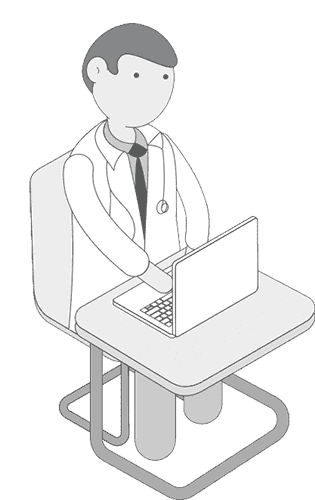Debunking New Year’s Diet Myths
Blog

With each new year comes a flood of resolutions, bringing with them different diet trends and quick fixes that promise fast results. While these approaches may be tempting, many are based on myths that can lead to disappointment and false expectations – or worse, harm your health. Building sustainable, healthy habits is a much better approach to achieving your goals than falling for common misconceptions. Our gastroenterologists and registered dietitians are here to help you separate fact from fiction and start the year on the right track.
Myth: Detoxes and Cleanses Eliminate Toxins
Detoxes and cleanses often claim to “reset” your body by flushing out toxins, but your liver and kidneys already handle this naturally. These organs work 24/7 to filter and eliminate waste from your body. Most detox products lack scientific backing and, in some cases, can even be harmful, depriving your body of essential nutrients. Instead of a restrictive cleanse, focus on drinking plenty of water, eating fiber-rich foods, and maintaining a balanced diet to promote your body’s natural detox process.
Myth: Carbs Are the Enemy
Carbohydrates (commonly referred to as “carbs”) have been unfairly scrutinized in many popular diets. In reality, carbs provide an essential source of energy for your body and essential fiber for promoting a diverse, resilient gut microbiome. The key is choosing the right types of carbs and consuming them in balanced portions. Whole grains, fruits, vegetables, and legumes are excellent sources of complex carbohydrates that provide fiber, vitamins, and minerals. On the other hand, refined carbs and added sugars found in sweetened beverages, salty snacks, candy, desserts, and certain highly processed foods should be kept to a minimum. Eliminating all carbs is like throwing out the proverbial baby with the bathwater: it’s neither necessary nor, for most people, sustainable; instead, aim for a more nuanced approach.
Myth: You Can Out-Exercise a Bad Diet
While exercise is essential to your overall health, it is not a substitute for healthy eating. No amount of time at the gym can undo the effects of a poor diet. Nutrition plays a more significant role in weight management than exercise. Think of exercise and diet as partners; both are critical to a healthy lifestyle. Focus on fueling your body with nutritious foods to maximize the benefits of your workouts.
Myth: Rapid Weight Loss is Sustainable
The promise of quick weight loss can be enticing, but it’s often unrealistic and unsustainable. Crash diets can lead to nutrient deficiencies, muscle loss, and a slower metabolic rate. Due to its effects on muscle mass and the metabolic rate, rapid weight loss also increases the likelihood of regaining the weight—plus extra-- once your regular diet resumes. What’s more: weight cycling—or patterns of losing and regaining large amounts of weight repeatedly—is itself a risk factor for developing cardiovascular disease and may be worse for your metabolic health than maintaining a stable, higher body weight. Aiming for sustainable diet and lifestyle changes that promote a gradual weight loss of no more than one to two pounds per week is a much healthier and more sustainable plan.
Focus on Habits, Not Quick Fixes
The best way to achieve lasting health and wellness is by focusing on building healthy habits that you can maintain for the long haul instead of chasing quick fixes. Start by setting small, realistic goals, such as incorporating more vegetables into your meals or taking daily walks. Over time, these small changes can lead to significant results. Once you have mastered these, it may be easier to take on an additional goal that builds on your successes. Consistency, rather than perfection, is the secret to long-term success.
If you’re overwhelmed by conflicting diet and nutrition advice, NYGA is here to help. Our team of gastrointestinal (GI) dietitians can guide you toward sustainable strategies that prioritize your health and well-being for the year ahead and beyond.
Don’t wait; prioritize your health.
